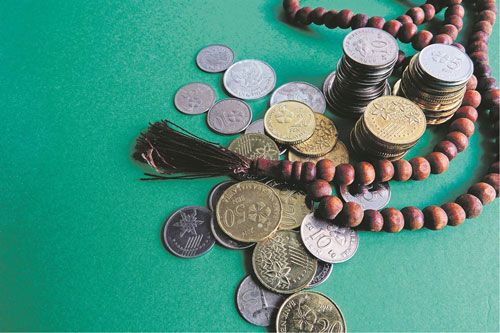Many believe that Islamic financial products are only suited to Muslim savers. They are wrong, though, as they are not designed to exclude others. Instead, these products offer a different approach.
“Islamic banking is a credible alternative to conventional banking. It is a principle-based approach to banking, based on Islamic law, which is available to anyone, irrespective of their faith,” says Mohamed Naeem Ebrahim, the head of retail at FNB Islamic Banking.
More non-Muslim savers are being drawn in by the Islamic products. Old Mutual points out that 25% of its sharia investments come from non-Muslim investors. “Our sharia funds are open to Muslim and non-Muslim investors,” says Maahir Jakoet, portfolio manager at Old Mutual Investment Group.
“The Old Mutual Albaraka Shari’ah Funds are also aimed at anyone who wants to manage their wealth in a way that is consciously ethical, by aligning their investments with their values and beliefs, without sacrificing returns.”
Sharia Finance Defined
But what exactly is sharia fina nce and why should these products be considered? According to the Banking Association SA, Islamic finance is based on four main principles: the prohibition of interest, ethics that prohibit investment in unlawful businesses, transparency, and equitable sharing of risk and reward primarily through the use of profit- and loss-sharing contracts.
Simply put, these products do not offer interest in the traditional sense as most would understand it and they will not trade the shares of companies that deal in the production of weapons, alcohol, gambling and pornography, for instance.
Instead, they tend to invest in private equity deals, property and exchange-traded funds. To adhere to the principles, Islamic scholars are consulted about investment decisions.
A Shaky Start
Islamic finance had a shaky start in South Africa. Jaame Limited was the first Islamic bank to launch locally in 1980, but it was soon liquidated due to financial difficulties.
However, there are now several established providers offering Islamic banking and investment products, including Old Mutual, Absa, FNB, Franklin Templeton, Momentum and Al Baraka Bank. The products on offer vary. Investors can choose from transactional accounts, Islamic term deposit accounts, savings accounts, sharia-compliant funds and bonds (sukuk) from the likes of Franklin Templeton.
“Sukuk – bonds that are sharia compliant – have continued to steadily make their way into the financial mainstream. This is because they can exhibit characteristics of lower volatility, greater diversification, stronger risk-adjusted returns and higher yields than developed market bonds,” explains Mohieddine Kronfol, lead portfolio manager of the Franklin Global Sukuk Fund.
Companies are constantly looking to expand their product offering. Old Mutual, for instance, offers three funds to investors, which include the Old Mutual Albaraka Balanced Fund, the Old Mutual Albaraka Equity Fund and the Old Mutual Albaraka Income Fund, and it also has plans to launch a Global Islamic Fund.
There are even sharia-compliant insurance products on offer (takaful). Takaful is a type of Islamic insurance in which members contribute money to a pool system to effectively protect others against loss or damage.
Do these products offer a good return?
For the most part, the sharia principles will stop your money from gaining exposure to riskier stocks. This, some feel, is a disadvantage – particularly if you’re wanting to get good returns in a short time.
However, these investment principles have proved to be significantly advantageous in that they generally avoid financial meltdowns and scandal-hit businesses, and, as a result, offer a more solid, stable “return”.
“At Old Mutual, our investment approach incorporates the higher purposes and objectives of Islamic law by actively incorporating environmental, social and governance (ESG) principles, and the UN sustainable development goals, and by sharing common values with the higher objectives of Islamic law – which, among other things, seeks the preservation and protection of life, resources and the environment,” says Jakoet.
Over the past 12 years, we have had a number of stressful environments, including the 2008 financial crisis, emerging market sell-offs, Brexit and oil market setbacks, and yet the sukuk asset class has continued to generally outperform its conventional peers.
A Mature Market?
These days, investors have a better choice of products than those who were considering Islamic finance back in the 1980s.
It has become easier to compare products, as the main players all display their product information and fund fact sheets online.
If they’re still confusing, many financial planners are now well versed in these products too, and can offer advice to investors on the most suitable ones for their portfolios.
But, despite the maturity of Islamic finance in the broader South African market, the product range still has some way to go before offering a similar variety to conventional banking and investment products. —News24










